Musikmesse 2016: The present and future of Europe’s biggest MI trade show
by Claudius Grieger
For me, Musikmesse is an industry institution that’s all about innovation across the whole range of music instruments. But over the last few years, Musikmesse has sadly continued to shrink in size. This year it was smaller than ever. Here’s what I experienced at Musikmesse 2016, as well as a few thoughts about the show itself…
At Musikmesse I tend to get a bit cheeky and roam around the booths the day before it opens. I walked around for an hour, finding a smaller number of halls exhibiting than last year, and was half expecting some overnight additions and the unveiling of some top secret new products. Or that I’d somehow managed to miss a hall or two. The next day was sobering. After a night at the hotel – which costs half as much when there are no trade shows on – I realised that I hadn’t “lost” a trade show hall. My favourite hall is the one containing the guitars and basses, and only half its floor space was dedicated to those instruments. The other half housed the drums. This meant it was fairly quiet, and I thought the hall had a weird atmosphere this year.
And this hall turned out to be relatively kind to its exhibitors and visitors in terms of noise. Compared to the piano hall or the studio and DJ equipment areas, it was like a quiet zone. The piano hall was the worst in terms of noise, and a lot of visitors I spoke to over the course of the show confirmed this impression. People had to stand right next to each other and speak very loudly to be understood. If you were more than two metres apart, you’d have had to use a megaphone. Although I’d sensibly planned ahead and brought some ear protection, I couldn’t stand it for more than 30 minutes in either of those halls. My sympathy goes out to the booth staff. In terms of sheer loudness, the show gets a big thumbs down from me. The last few years were better in this respect, as I had the feeling that the “loudness police” were more effective last year. This was confirmed for me by the guys at the Musotalk website on day two of their Messe coverage.
Another problem about being at Messe – apart from the ridiculous hotel costs – was getting something to eat. As a vegetarian, each of the snack bars offers me a selection totalling all of one vegetarian dish and a salad. At one stall, a portion of moussaka cost me a whopping €12.50, and reminded me of something served at school canteen. Just think about that for a minute. Okay, you might say, that’s trade show prices for you. But it doesn’t exactly make the whole thing more attractive. While it may not be a completely fair comparison, I couldn’t find a single example of overpriced food at the recent Superbooth show in Berlin. Although they had a smaller selection for carnivores, they also had some vegan fare for the people who take their diet very seriously. Still, on the plus side the trade show ticket at Musikmesse entitles you to use the public transport network free of charge. The ticket, by the way, cost €40 just for the Thursday. The following days are cheaper.
This year saw a changed policy on admission for the general public; non-industry visitors could go whenever they liked, and not just on the last day or two as in previous years. This meant that the booths were so packed that even as a journalist I had to queue up at booths to speak to someone, which meant that I wasn’t able to cover stories in as much depth as much as I’d have liked. At two booths, the staff I was talking to suddenly saw someone behind me they knew, went there for some small talk and then forgot all about me. I can’t imagine what it must be like for visitors who don’t have a press pass. Maybe I was asking too many questions, or wasn’t important enough given that I wasn’t holding a video camera in everyone’s face.
But let’s get to one problem that really is giving Musikmesse’s organisers a headache. There were substantially fewer exhibitors than last year. Exhibitor numbers have been falling for years, but it was never this obvious. Then factor in the masses of people (poor air quality) and the loudness, and it comes as no surprise that a few of the exhibitors I talked to are going to be thinking hard about whether they will come back next year. This year the smaller booths by companies from the Far East were more noticeable. Either there are more of them now or they seem to take on a bigger role because many other makers weren’t at the show at all. And I don’t only mean “copycat” companies (of whom there were several); many had their own ideas and approaches. Why not, after all? It’s time we did away with the cliché that all companies from the Far East do is copy other manufacturers.
But you could also tell from the way the halls had been planned where the market sees potential, namely in the producing, DJ and studio areas. That hall had a lot more well-known companies present, and the visitors also seemed to enjoy being there more than in other halls. This, however, made it almost unbearably loud. I mean, guitars and basses had to share a hall with drums! You can imagine.
IMHO, Musikmesse has the following problems:
- The time frame is too close to NAMM. They need to find a date in the calendar that’s more useful. Can’t be that hard, can it? OK, maybe it’s not so easy. But at least then we’d see more new products announced here in Germany.
- The new concept of “booths being always open for everyone” doesn’t work for a lot of the exhibitors. It’s simply too packed. Even journalists like me have to wait before we can even talk to someone. Personally, I think that sucks. And what about playing some of the instruments, you ask? Even if the manufacturer lets you touch the instruments…
- …the background noise is so loud you can hardly hear anything. Despite having brought headphones and a headphone amp with me, the noise was so bad that it was impossible to tell the difference in sound between a guitar costing €10 and one costing €1000. Companies could start offering little listening booths or, as our contributor Moogulator suggested in the Musotalk videocast, they should enforce a “headphone-only listening” policy. Would that really be so bad?
- Pricing on accommodation and food are an absolute disaster. OK, the Musikmesse organisers don’t control that, but it’s an issue that desperately needs tackled. The issue here is also the additional costs for the exhibitors that come on top of what they already pay to take part. In the internet age, it simply doesn’t add up any more, especially if the same company already went to NAMM.
I think it’s important to talk about these problems because I want to see Musikmesse grow again, and go back to being a show that I like going to. It should be about inspiring people, and not turning them off. Manufacturers and exhibitors need to feel that they are getting a good deal so that they don’t only present their new stuff in the USA. Which is rubbish.
What you, dear organisers, should NOT do is give up, or pretend that everything is going just fine, thank you very much. Because it’s not, and I think everyone knows that. Just go out and ask some of the visitors and exhibitors what they think. And if you don’t act promptly then this, as some pessimists are saying, might have been one of the last Musikmesse shows.
Come on guys, you can do better! I don’t have a simple solution, but I don’t want the doubters to be proved right.
Find out what all your favourite gear-makers presented at the show in our Musikmesse round up.
One response to “Musikmesse 2016: The present and future of Europe’s biggest MI trade show”
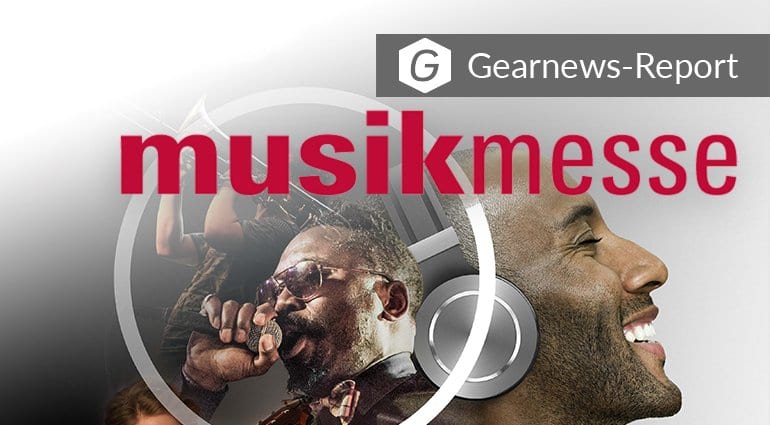



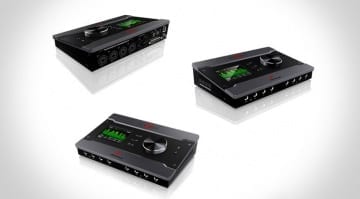
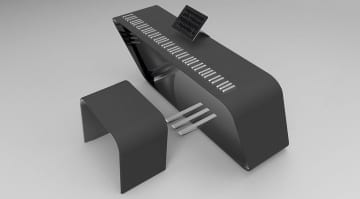
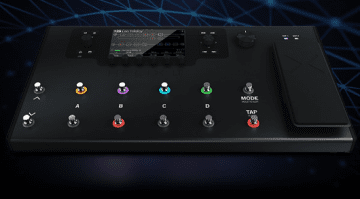
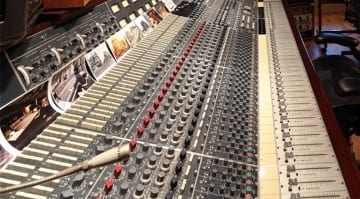
Claudius, great post, thanks for sharing that and it was interestng to read your impressions. I remember when Frankfurt was an absolute must on the calendar of almost every major player. That has evidently changed a lot. But it’s worth considering that there are still things that make the show attractive, namely meeting your dealer network, journalist contacts and (at least German) customers face to face. But I think that the tipping point in terms of its declining status has already past. It is now an uphill struggle for the organisers to regain the initiative and make it a must-go event once again. They are, to be fair, trying to establish more music-related events around it, to combine the industry stuff with more of a music festival vibe. And I doubt that the absolute numbers of visitors are falling as fast as the floor space that’s being rented out. If in ten years Musikmesse has died out, the point where they could have turned the ship around was probably long ago.